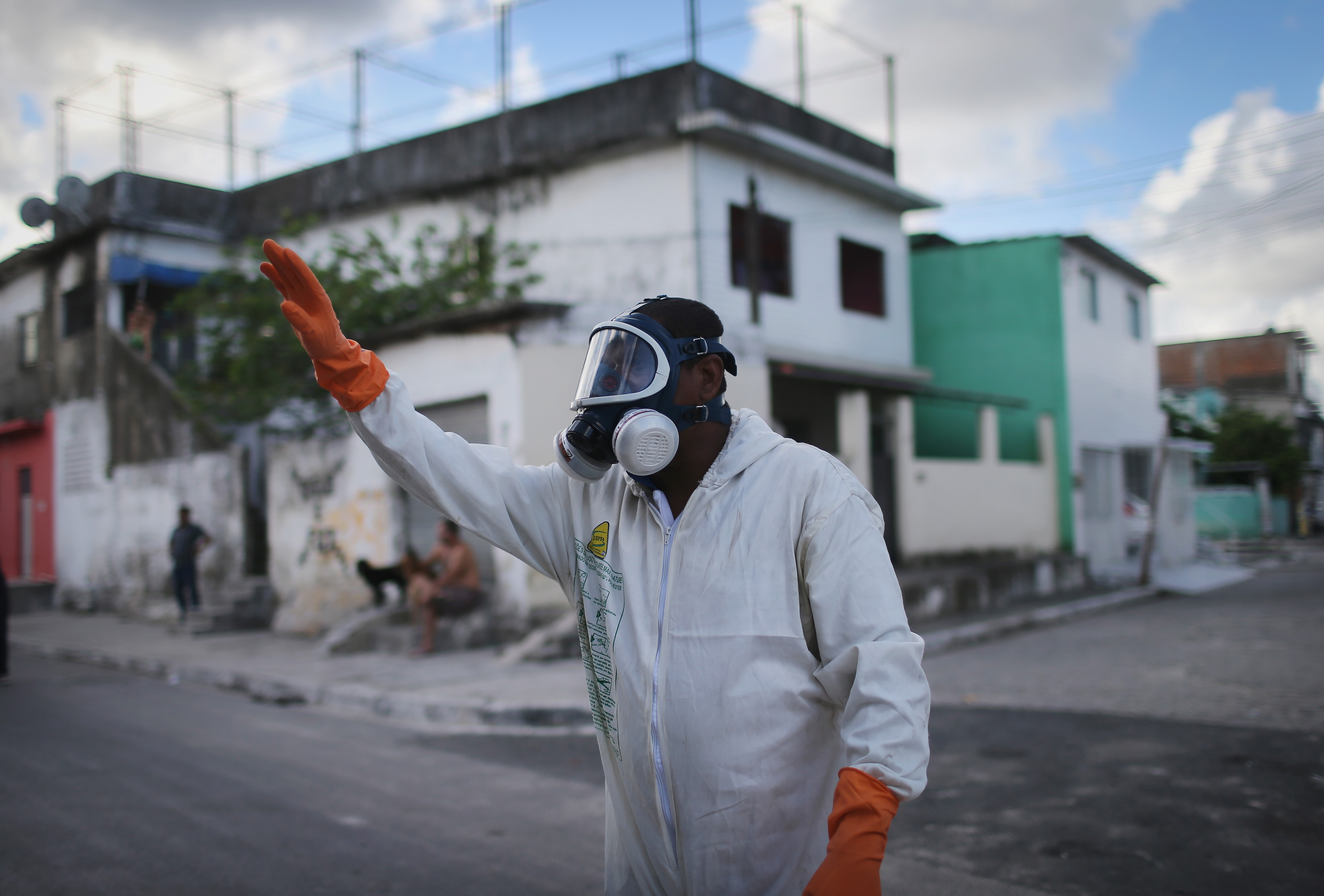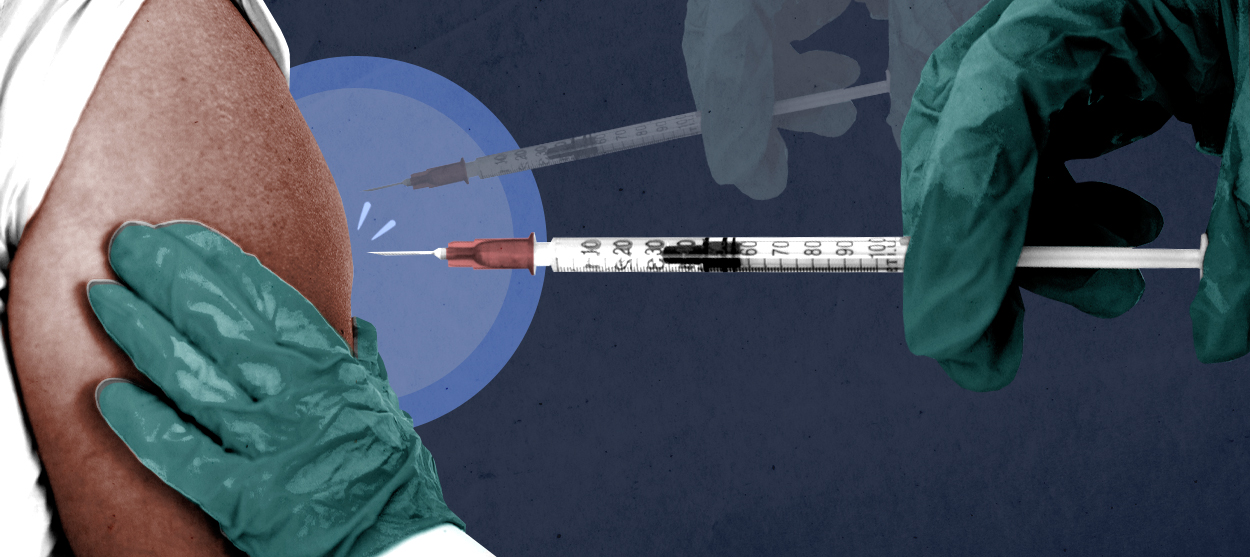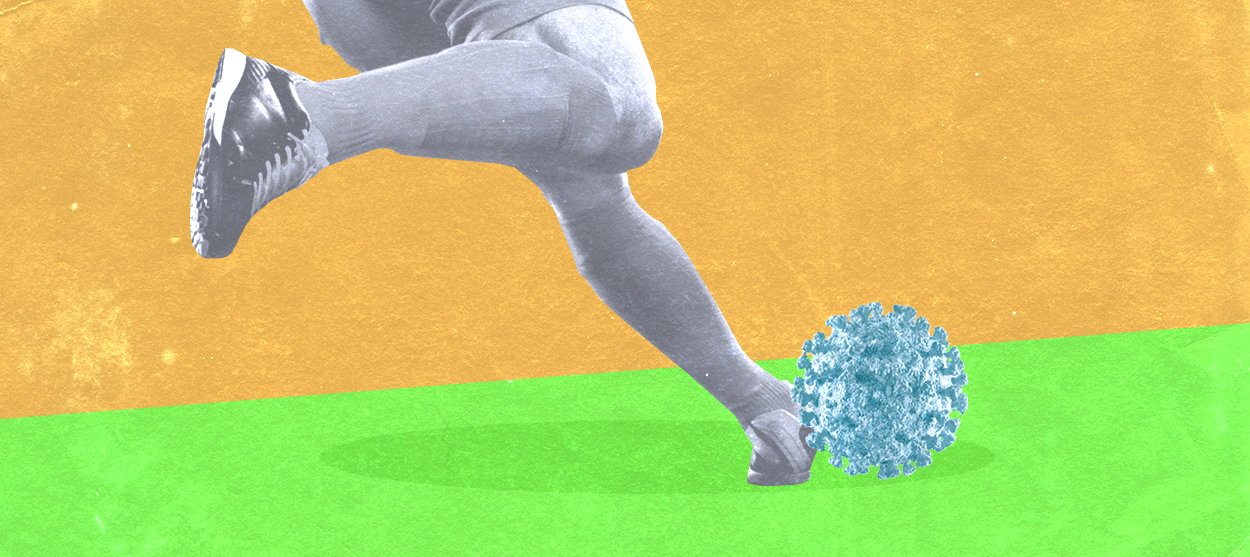The Zika epidemic, explained
With the 2016 Rio Olympics looming, researchers are racing to contain a menacing viral outbreak

A free daily email with the biggest news stories of the day – and the best features from TheWeek.com
You are now subscribed
Your newsletter sign-up was successful
With the 2016 Rio Olympics looming, researchers are racing to contain a menacing viral outbreak. Here's everything you need to know:
What is Zika?
It's a mosquito-borne virus that has infected hundreds of thousands of people and caused a rapidly spreading epidemic across Central and South America and the Caribbean. Found in the same family as yellow fever, chikungunya, and dengue, Zika was considered a relatively harmless cousin of those viruses until last year — when the explosion of 1 million cases in Brazil was accompanied by an unusual surge in a rare birth defect known as microcephaly. Zika has since spread to more than 30 countries, prompting the World Health Organization to declare a public health emergency. More than 4 million cases are expected in the Western Hemisphere alone this year. With the epidemic moving northward and summer approaching, U.S. officials are waiting for Zika-infected mosquitos to strike in Florida or other Gulf Coast states. "It's like preparing for a hurricane," said Dennis Moore, director of mosquito control in Pasco County, Florida. "You know it's coming from across the Gulf, but where it's going to land, we just don't know."
The Week
Escape your echo chamber. Get the facts behind the news, plus analysis from multiple perspectives.

Sign up for The Week's Free Newsletters
From our morning news briefing to a weekly Good News Newsletter, get the best of The Week delivered directly to your inbox.
From our morning news briefing to a weekly Good News Newsletter, get the best of The Week delivered directly to your inbox.
Is Zika a new virus?
No. It was discovered in 1947, among monkeys in Uganda's Zika forest. But until recently, human outbreaks have been small and infrequent, and limited to Africa and Asia. It wasn't until 2014 that the virus crossed over to the Western Hemisphere, hitting Easter Island before hopping to Brazil and then rapidly spreading throughout the Southern Hemisphere. In most cases, Zika is spread by the Aedes aegypti mosquito — a particularly efficient disease carrier that, aided by the warmer and wetter environments provided by climate change, has adapted to live all over the world, including the southeastern U.S. Aedes aegypti is an extremely prolific and resilient foe: "Their eggs can literally survive in a bottle cap of water," says public health professor Robert Amler. In the U.S., at least 153 people have contracted Zika, either by being bitten while abroad or through the semen of an infected male sex partner who had returned from an affected region.
What are the symptoms?
About 80 percent of sufferers don't experience any symptoms at all and aren't aware they're infected. The rest experience mild symptoms, including fever, muscle and joint aches, conjunctivitis, and a rash. But in a few rare cases, people with Zika go on to suffer serious complications. Scientists recently announced that they had discovered Zika in the blood of 42 people suffering from Guillain-Barré — a potentially fatal neurological condition that can cause paralysis. "The links are as strong as they would be for saying that tobacco causes lung cancer," said researcher Dr. Arnaud Fontanet. There are also strong links between Zika and another debilitating neurological condition: microcephaly.
A free daily email with the biggest news stories of the day – and the best features from TheWeek.com
What is microcephaly?
It's a birth defect characterized by abnormally small heads. In most cases, the baby's brain hasn't developed properly, leading to severe cognitive disorders, intellectual disability, and possibly death. In the first months of the Zika outbreak, the number of reported cases of microcephaly jumped 20-fold in Brazil. "Doctors, pediatricians, neurologists, they started finding this thing we never had seen," said infectious diseases researcher Celina Turchi. Reported cases of microcephaly in Brazil now number 4,222, with 641 confirmed. Scientists believe Zika can spread through a pregnant woman's amniotic fluid and into the brain of a fetus, attacking the neural cells and stunting the baby's brain development. While direct proof that the virus causes the condition has yet to be found, the evidence pointing to that conclusion is growing: A new study found that under laboratory conditions, Zika selectively attacks cells in the brain's cortex, or outer layer, interrupting brain growth.
What's being done to combat Zika?
Affected regions are trying to reduce mosquito populations with stepped-up spraying of insecticides. Meanwhile, at least 15 research groups are trying to develop a vaccine, though clinical trials could be at least 17 months away. President Obama has asked for $1.8 billion in emergency funding from Congress to help speed the vaccine work and fight the Zika epidemic. Pregnant women are also being advised to avoid affected regions, while women living at the center of the epidemic have been told to avoid getting pregnant for up to two years — guidance that has sparked a passionate debate about contraception and abortion in the predominantly Roman Catholic region. One other highly controversial option has yet to be implemented.
What's that?
Mass mosquito genocide. A British company called Oxitec has developed a genetically modified mosquito that could wipe out the Aedes aegypti species by passing on a self-destructive gene that kills the insect's offspring at the larval stage. Labeled the "Robo-Frankenstein mosquito" by its detractors, the GM mosquito successfully wiped out 99 percent of the target population when it was released into Brazil's streets during a 2011 experiment. Going to the genetic option may become increasingly attractive as air travel and climate change allow dangerous tropical illnesses like West Nile and dengue fever to march north to colder climates. But scientists remain divided about whether eliminating mosquitoes is worth the risk of unintended consequences for the ecosystem. "We want to be very careful about this," says mosquito researcher Anthony James. "None of us want to be known for creating some kind of disaster."
The ticking Rio time bomb
In a matter of months, more than 10,500 athletes and 600,000 spectators are set to descend on Brazil, epicenter of the Zika outbreak, for the 2016 Rio de Janeiro Olympics. Brazilian officials have reassured visitors that Zika is under control, but a growing number of female athletes — including U.S. soccer goalkeeper Hope Solo — have suggested they may avoid the games until more is known about the link between Zika and microcephaly. A larger problem looms, though: While Brazil will be in its winter by August and the number of mosquitoes lower, it would take only a few visitors to contract Zika and carry the virus back to their home countries, many of which will be in their midsummer and swarming with mosquitoes. The rapid spread of Zika via the Olympics, says infectious disease physician Kamran Khan, could occur as the result of "even one chance event."
-
 How to Get to Heaven from Belfast: a ‘highly entertaining ride’
How to Get to Heaven from Belfast: a ‘highly entertaining ride’The Week Recommends Mystery-comedy from the creator of Derry Girls should be ‘your new binge-watch’
-
 The 8 best TV shows of the 1960s
The 8 best TV shows of the 1960sThe standout shows of this decade take viewers from outer space to the Wild West
-
 Microdramas are booming
Microdramas are boomingUnder the radar Scroll to watch a whole movie
-
 Do unvaccinated COVID patients deserve scarce care? A doctor weighs in.
Do unvaccinated COVID patients deserve scarce care? A doctor weighs in.The Explainer Justice, judgment, and the last ICU bed
-
 How to vaccinate the anti-vaxxers
How to vaccinate the anti-vaxxersThe Explainer Instead of blaming people for not doing the right thing, let's focus on eliminating the obstacles to vaccination that still remain
-
 The U.S. could double its COVID-19 vaccine availability overnight. What's the holdup?
The U.S. could double its COVID-19 vaccine availability overnight. What's the holdup?The Explainer How the FDA could approve a more efficient vaccine rollout
-
 The October Surprise nobody wanted
The October Surprise nobody wantedThe Explainer Trump has COVID-19. Really, 2020?
-
 Life is worth living
Life is worth livingThe Explainer What's driving America's rising suicide rate?
-
 Social workers are masters at de-escalation. Here's what the police can learn from them.
Social workers are masters at de-escalation. Here's what the police can learn from them.The Explainer Knowing how to peacefully resolve conflict, rather than exacerbate it, can save lives
-
 Settling in for the long pandemic
Settling in for the long pandemicThe Explainer Life won't be back to "normal" anytime soon
-
 Sports reveal how much America is trailing the rest of the world
Sports reveal how much America is trailing the rest of the worldThe Explainer MLS and other American leagues are stumbling through their pandemic restart plans